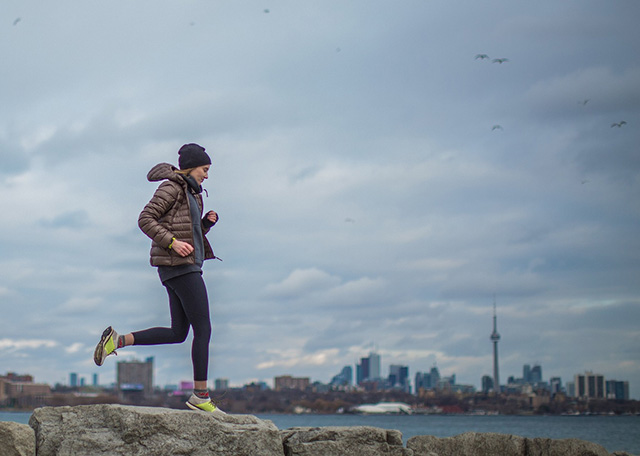Occasionally athletes will travel to a cold climate for training or competition. Spending time at high altitude, where it will undoubtedly be cold, is also something some elite endurance athletes may do.
Hot Food is Tempting
When traveling away from home, athletes tend to overeat, and when it is in a cold climate, the tendency to overeat is even greater. The cool climate increases your appetite and makes you eat more food. The cool climate also makes you want to eat higher fat foods, plus there is usually more food of that type on offer. Don't be tempted by warming high fat foods, like lasagna, and other creamy sauce dishes.
Do Forget Your Fluids
When we are not thirsty and not sweating as much as in hot climates, people tend to forget to drink. You continue to sweat in cold climates, and you do need to continue to drink lots of fluid.
The following are some fluid tips when traveling:
- Fluid is still important when traveling to a cooler environment.
- The airline cabin has low humidity and can cause dehydration.
- Being out of routine can lead to reduced intake of fluids.
- An easy way for athletes to self monitor is to check urine color (dark = dehydrated, light = well hydrated). (see urine testing)
- Athletes should always carry a water bottle.
 There are many things to look out for when traveling to a cold climate
There are many things to look out for when traveling to a cold climateOther considerations
- Plane Tips - Ask for extra bread (maybe the coach can do this prior to the trip) and accept all drinks offered.
- Jet Lag - Disruption of your sleep cycle, change of your routine (see more about minimizing jet lag)
- Food Safety - Make sure food that hot food is hot, and cold food is cold (more about food safety when traveling)
- Takeaway/Takeout and Restaurant eating
In summary
- Be clear about your nutritional goals, and how these might change at various times in training and competition.
- Be organized and plan ahead for your trip.
- Continue to drink plenty of fluids, especially on the plane journey.
- When eating out, be careful of what you choose, and try not to overeat, or eat too many fatty foods.
Related Pages
- Winter Weather Workouts — taking care in the cold
- Nutrition for Winter Sports
- Sports Nutrition and Altitude
- Tips for Beating Jet-lag


 Current Events
Current Events